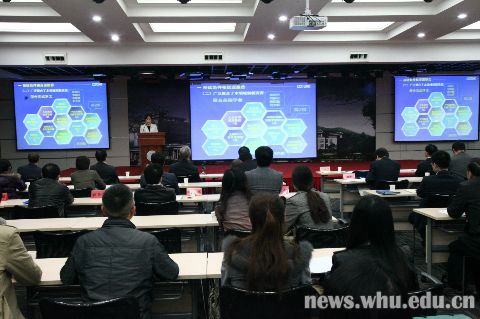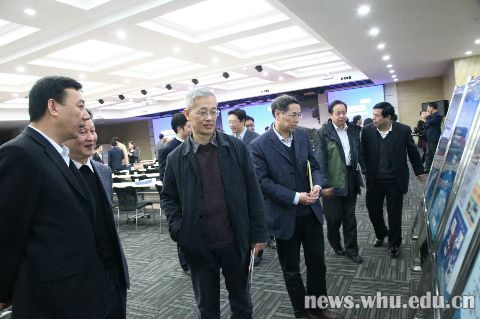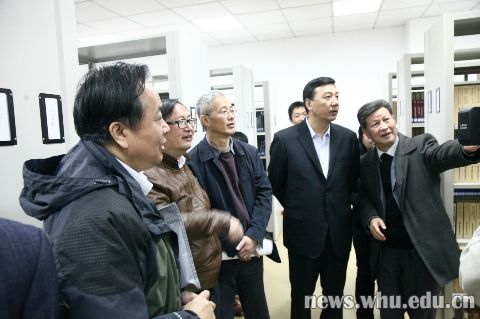On March 16th, a panel of experts from “2011 Project” collaborative innovation center under the Ministry of Education came to inspect the Center for Collaborative Innovation on State Territorial Sovereignty and Maritime Rights in which Wuhan University (WHU) plays a leading role.
The panel, led by Professor Qiudong from Beijing Normal University, is comprised of Yang Jiemian from the Shanghai Institutes for International Studies, Wu Handong from Zhongnan University of Economics and Law, Liu Jiangyong from Tsinghua University and Zhang Donggang, Ministry of Education social science department deputy director, among others. Executive President Feng Youmei reported on the establishment of the center. Vice-Chair of the University Council, Luo Yuting, WHU Vice-President Zhou Chuangbing and Tan Guangming, the Center for Collaborative Innovation on State Territorial Sovereignty and Maritime Rights Director and Senior Professor Hu Dekun also attended the meeting.

Experts looked on approvingly when listening to the report and seeing the exhibition boards displaying various successes in scientific research and scholar development. The group also broke down and individually met with leading experts from the center before receiving a tour of the digital engineering department, reference room, confidentiality room, and research room.

The Center for Collaborative Innovation on State Territorial Sovereignty and Maritime Rights was founded in September 2012 and aims to become a world class national think tank.

Wuhan University has a long history for research and practice in territorial sovereignty and maritime rights. Previous president Wang Shijie and famous WHU jurist Zhou Gengsheng both made lasting contributions to maintaining national territorial sovereignty and maritime rights, and national key disciplines such as international law, environmental law, world history, Chinese history, world economics, science and technology in surveying and mapping, hydraulic engineering, etc. have involved research on maritime boundaries. In April 2007, WHU China Institute of Boundary and Ocean Studies was established. On the basis of resources in the campus, the institute has developed into the only comprehensive platform for interdisciplinary research on oceanography and national boundaries, which laid the solid foundation for the establishment of the collaborative innovation center.


